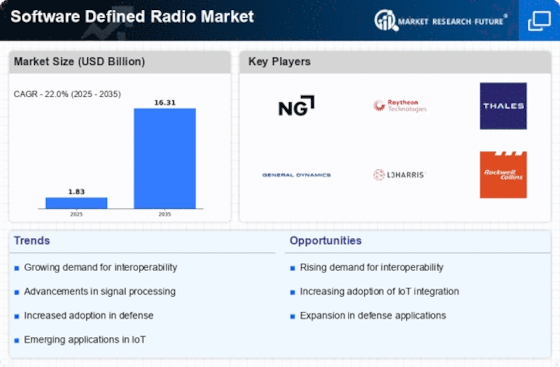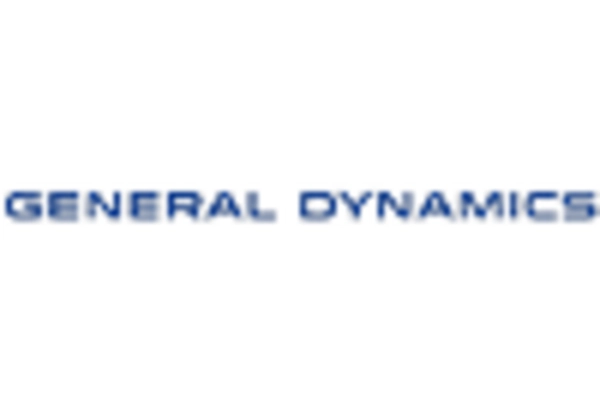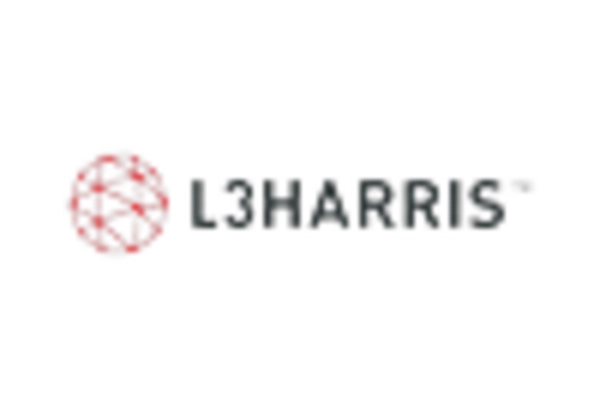Market Share
Software Defined Radio Market Share Analysis
The Software Defined Radio (SDR) market is witnessing notable trends that reflect the dynamic evolution of radio communication technologies. One prominent trend is the increasing adoption of SDR in the telecommunications sector. As the demand for high-speed data, low latency, and efficient communication grows, SDR technologies offer a flexible and adaptable solution. Telecommunications providers are leveraging SDR to enhance the capabilities of cellular networks, base stations, and mobile devices, driving a trend towards more software-driven and virtualized communication infrastructures.
Another significant trend is the expansion of SDR applications in the defense sector. Modern military operations demand agile and versatile communication systems, and SDR's programmable nature allows for rapid adaptation to changing communication requirements. The defense industry is increasingly integrating SDR into its communication systems, enabling dynamic spectrum allocation, secure communications, and interoperability across different military platforms. This trend underscores the critical role of SDR in addressing the communication needs of contemporary defense forces.
Interoperability remains a key trend shaping the SDR market. With the coexistence of various communication standards and protocols, the demand for systems that can seamlessly operate across different networks is growing. SDR's inherent flexibility and ability to adapt to diverse standards position it as a preferred choice for applications where interoperability is crucial. This trend is particularly relevant in public safety communications, industrial IoT deployments, and scenarios where multiple communication standards need to coexist.
The ongoing evolution of wireless networks, including the deployment of 5G and the anticipation of future generations, is a driving trend in the SDR market. The demand for higher data rates, reduced latency, and improved connectivity is pushing the boundaries of traditional communication technologies. SDR's adaptability to evolving standards positions it as an enabler for the advancement of wireless networks, providing a foundation for the seamless integration of new technologies and services.
Cost-effectiveness is a noteworthy trend influencing the adoption of SDR solutions. Traditional radio communication systems often required dedicated hardware for specific standards, leading to increased costs. SDR's software-based approach allows for the reuse of existing hardware, reducing the need for frequent hardware upgrades and offering a more cost-effective solution. This trend appeals to industries and organizations seeking efficient ways to upgrade and modernize their communication infrastructure without incurring substantial costs.
Security considerations are increasingly shaping the trends in the SDR market. With cybersecurity threats becoming more sophisticated, the ability to implement robust encryption and security protocols is crucial. SDR's programmable nature enables the integration of advanced security features, making it a preferred choice for applications where secure and resilient communication is paramount. This trend is particularly significant in defense, public safety, and critical infrastructure deployments.
Commercial applications of SDR, beyond traditional radio communication, are emerging as a trend in the market. SDR technologies are finding applications in diverse sectors, including healthcare, automotive, and industrial automation. The ability of SDR to adapt to different communication requirements makes it suitable for a wide range of applications beyond traditional radio, contributing to the trend of expanding SDR into new and innovative use cases.
The trend of regulatory frameworks and standardization efforts is playing a vital role in shaping the SDR market. The industry's adherence to regulatory requirements and the establishment of common standards for SDR technologies contribute to market growth. Standardization fosters interoperability, easing integration challenges and accelerating the adoption of SDR across different applications and industries. Collaborative efforts in defining and adhering to standards are instrumental in shaping the market trends of SDR.
Spectrum efficiency and management are becoming crucial trends in the SDR market. The increasing demand for wireless communication services necessitates efficient utilization of available frequency bands. SDR's dynamic adaptability to spectrum availability, interference avoidance, and optimization of spectrum usage align with the industry's pursuit of effective spectrum management. This trend reflects the industry's focus on addressing the challenges of growing demand for wireless connectivity within the constraints of available spectrum resources.


















Leave a Comment